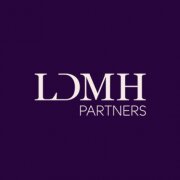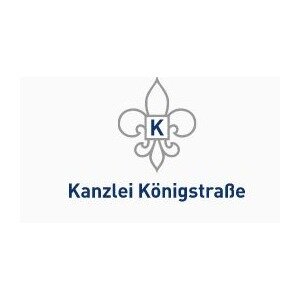Best FDA Law Lawyers in Germany
Share your needs with us, get contacted by law firms.
Free. Takes 2 min.
Or refine your search by selecting a city:
List of the best lawyers in Germany
About FDA Law in Germany
FDA Law in Germany, commonly referred to as Food and Drug Law or Life Sciences Law, encompasses the legal regulations governing the production, distribution, sale, and monitoring of food, pharmaceuticals, medical devices, cosmetics, and other regulated consumer products. Unlike the United States' Food and Drug Administration (FDA), Germany enforces these regulations through various federal agencies such as the Federal Institute for Drugs and Medical Devices (BfArM) and the Federal Office of Consumer Protection and Food Safety (BVL). German FDA Law is designed to protect public health, ensure product safety, and maintain high quality standards for goods sold to consumers.
Why You May Need a Lawyer
Navigating FDA Law in Germany can be complex due to strict regulations, frequent updates to legislation, and the overlap of European Union law. Here are some common situations when legal advice may be needed:
- Launching a new food, drug, medical device, or cosmetic product in Germany.
- Ensuring compliance with labeling, advertising, or packaging requirements.
- Handling product recalls, withdrawal, or crisis management.
- Intellectual property disputes related to patented pharmaceuticals or protected product formulations.
- Inspections, audits, or investigations by regulatory authorities.
- Importing or exporting regulated goods.
- Addressing violations or facing potential penalties due to alleged non-compliance.
Legal professionals in this field help companies and individuals understand their obligations, represent interests in front of authorities, and resolve disputes efficiently.
Local Laws Overview
Germany has a robust legal framework for the regulation of food, drugs, medical devices, and cosmetics. Here are some key aspects:
- Food Law: The Food and Feed Code (LFGB) sets forth general food safety requirements, while the BVL oversees enforcement and compliance for all food products.
- Pharmaceuticals: The Medicinal Products Act (AMG) governs the authorization, manufacture, and distribution of drugs and sets strict standards for clinical trials and post-market surveillance.
- Medical Devices: Regulated under the Medical Devices Implementation Act (MPDG) and the EU Medical Device Regulation (MDR). Registration, safety assessments, and vigilance reporting are crucial elements.
- Cosmetics: Subject to the EU Cosmetics Regulation, covering product formulation, safety assessment, and labeling.
- Advertising: Promotional activities must comply with both German and EU law. Misleading claims or non-compliant promotions can lead to penalties.
- EU Influence: Many regulations implement EU directives and regulations, making compliance with both local and EU-wide requirements essential.
Understanding these overlapping legal areas is essential for ensuring compliance and avoiding costly mistakes.
Frequently Asked Questions
What is the main authority overseeing FDA Law in Germany?
Several agencies oversee FDA Law, including the BfArM for drugs and medical devices, the BVL for food, and local state authorities for enforcement.
Is registration required for all products before market entry?
Yes, drugs and many medical devices require marketing authorization before being sold. Foodstuffs may not need pre-market registration but must comply with labeling and safety standards.
What are the penalties for non-compliance with FDA Law in Germany?
Penalties range from product recalls, fines, and withdrawal of licenses to criminal prosecution in severe cases.
Can I import dietary supplements into Germany without special approval?
Dietary supplements are regulated as food and must comply with LFGB and related labeling requirements. Some ingredients may need pre-approval.
Are there specific EU regulations that also apply in Germany?
Yes, EU regulations such as the Medical Device Regulation and Cosmetics Regulation are directly applicable in Germany alongside national laws.
What legal obligations exist for product recalls?
Manufacturers and distributors must promptly inform authorities about defective products and cooperate in voluntary or mandatory recalls to protect public health.
How are pharmaceutical advertisements regulated?
German law prohibits misleading advertising for drugs and requires strict adherence to approved indications and claims. Advertising to the general public is restricted for prescription medicines.
Is clinical trial approval mandatory in Germany?
Yes, clinical trials for drugs and medical devices require authorization from BfArM or PEI, as well as approval from an ethics committee.
What is pharmacovigilance?
Pharmacovigilance refers to the ongoing monitoring of drug safety. Manufacturers are required to report adverse events to BfArM and continuously assess product safety.
How can a lawyer help with FDA Law issues in Germany?
A lawyer can navigate regulatory requirements, handle compliance matters, communicate with authorities, manage recalls, and represent interests in administrative or court proceedings.
Additional Resources
If you need further information, the following resources and authorities can provide guidance and assistance:
- Federal Institute for Drugs and Medical Devices (BfArM): Responsible for drugs and medical devices regulation.
- Federal Office of Consumer Protection and Food Safety (BVL): Ensures food safety and consumer protection.
- Paul Ehrlich Institute (PEI): Covers vaccines and biomedicines.
- German Federal Ministry of Health (BMG): Sets national health policies.
- German Pharmaceuticals Act (AMG) and Food and Feed Code (LFGB): Primary laws governing pharmaceuticals and food.
- Local Chambers of Commerce: Often provide information on import, export, and compliance requirements.
- Professional Associations: Including the German Association of Research-Based Pharmaceutical Companies (vfa).
Next Steps
If you believe you need legal assistance with FDA Law in Germany, consider these steps:
- Identify your precise issue or question, such as regulatory compliance, product approval, or dispute with authorities.
- Gather all relevant documentation, including product information, regulatory correspondences, and inspection reports.
- Contact a qualified lawyer or law firm with expertise in FDA Law, food, and drug regulatory affairs in Germany.
- Prepare specific questions or concerns to discuss during your initial consultation.
- Stay up to date with ongoing changes in German and EU law that may affect your products or business practices.
Legal professionals experienced in this field will guide you through the complexities of German FDA Law, support you in dealings with authorities, and help secure compliance for your products or services.
Lawzana helps you find the best lawyers and law firms in Germany through a curated and pre-screened list of qualified legal professionals. Our platform offers rankings and detailed profiles of attorneys and law firms, allowing you to compare based on practice areas, including FDA Law, experience, and client feedback.
Each profile includes a description of the firm's areas of practice, client reviews, team members and partners, year of establishment, spoken languages, office locations, contact information, social media presence, and any published articles or resources. Most firms on our platform speak English and are experienced in both local and international legal matters.
Get a quote from top-rated law firms in Germany — quickly, securely, and without unnecessary hassle.
Disclaimer:
The information provided on this page is for general informational purposes only and does not constitute legal advice. While we strive to ensure the accuracy and relevance of the content, legal information may change over time, and interpretations of the law can vary. You should always consult with a qualified legal professional for advice specific to your situation.
We disclaim all liability for actions taken or not taken based on the content of this page. If you believe any information is incorrect or outdated, please contact us, and we will review and update it where appropriate.
Browse fda law law firms by city in Germany
Refine your search by selecting a city.













